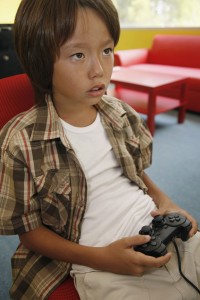 During the month of July, The New York Times had two noteworthy pieces by Jane E. Brody in the Personal Health section that focused on screen time and children. They grabbed my attention. Both articles highlighted similar distress that is often expressed by many parents coming into our practice. The most common frustrations expressed are regarding the length of time kids spend on devices, their limited face to face interactions with others, and the homework struggles that are a result of the distractions technology creates.
During the month of July, The New York Times had two noteworthy pieces by Jane E. Brody in the Personal Health section that focused on screen time and children. They grabbed my attention. Both articles highlighted similar distress that is often expressed by many parents coming into our practice. The most common frustrations expressed are regarding the length of time kids spend on devices, their limited face to face interactions with others, and the homework struggles that are a result of the distractions technology creates.
After reading Brody’s article on July 6th, I was interested in the PBS documentary, “Web Junkie” she referenced and soon after watched it. The documentary focused on China’s struggle and their approach to decrease the growing preoccupation among teenagers’ internet usage and gaming. The documentary specified that in China “internet addiction” is the number one public health threat to teens. Many parents in New York City think similarly; that their children and teens are hooked on screens although a formal diagnosis for this behavior has not yet been established.
A challenge for many parents is that schools require technology to complete academic demands. Additionally, youths’ interests are often centered on technology for entertainment and social connection. This leads to conflict and difficulties. Parents attempt to restrict time spent on screens and struggle with their approach. An important interpretation Brody plain and simply stated is that the use of screens has been reinforced by providing a consistent “babysitter” for children. This may be true for many families and an interesting idea to reflect on.
The documentary “Web Junkie” further put emphasis on technology as a teenager’s attempt to cope with loneliness. Connecting with others during games instantaneously or through social media likely reinforces use. All of the aforementioned points suggest the relationships our youth have with their technology devices is increasing and many parents are concerned and looking for ways to make changes.
How does a family start to make changes to create a healthy balance and live in a world surrounded by electronic devices? Some suggestions are:
- Establish rules & structure around technology at home
- Set limits and routines with devices
- Have device free time – for everyone; parents too!
- Model & encourage other activities to engage in at home
- Have alternative activities readily available for the child
- Get out and get physical
- Talk with your children
- Have family time without screens (i.e., play a board game, go to the park, bake cookies)
Bottom line, technology has advantages and is useful. Screens bring entertainment. Devices (phones, computers) are an important almost an obligatory part of everyday life. Internet has become a necessity for academic demands and social media a means to connect with others. Therefore, we must adapt, learn to live sensibly in a technology based world and help our children do the same. Change can happen when we help our youth develop healthy boundaries, routines and appropriate relationships.





